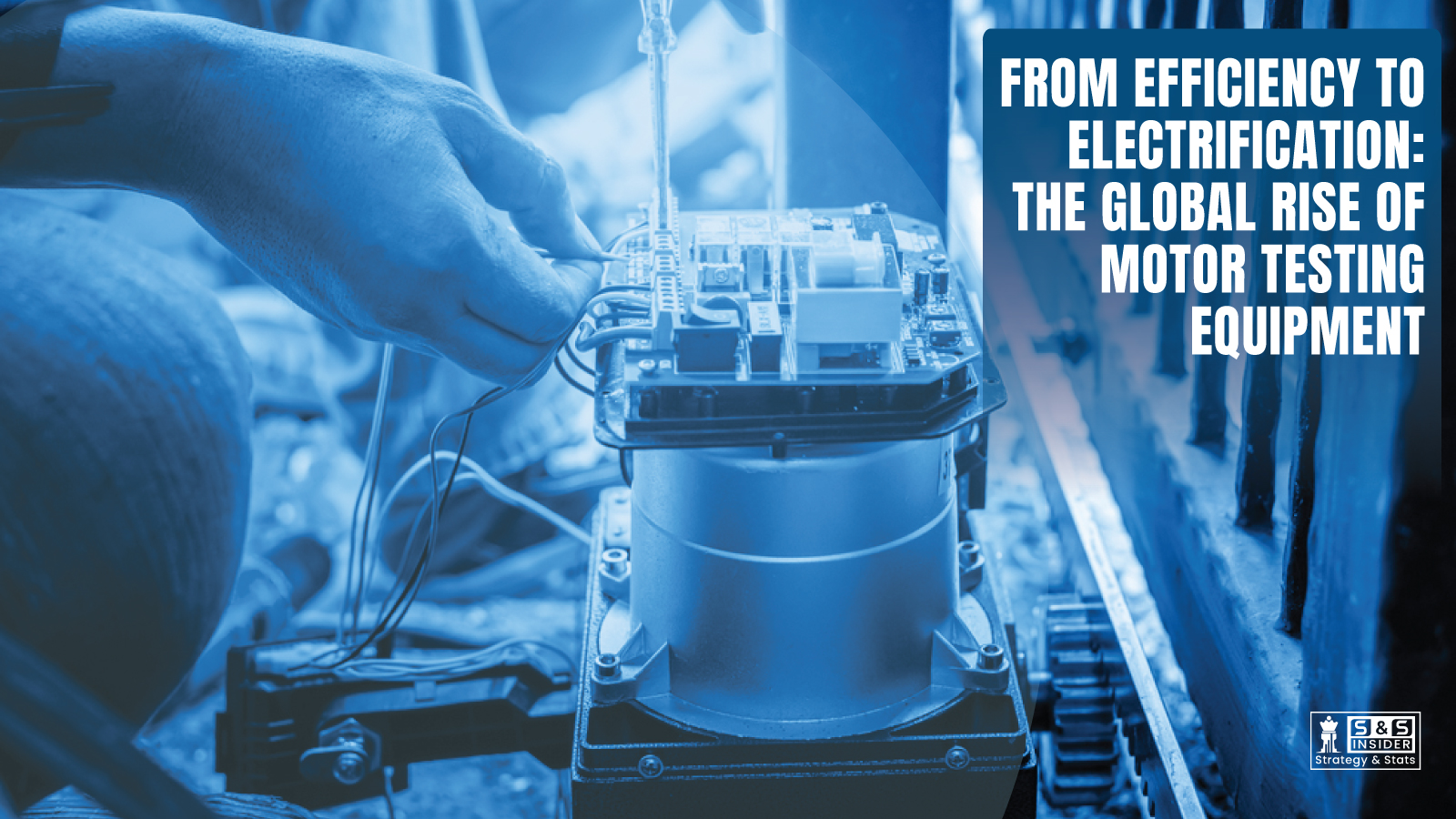
At the intersection of electrification, performance, and dependability is motor testing equipment. Motor testing systems are more important than ever as a variety of industries, including heavy machinery, automotive, aerospace, and renewable energy, strive for increased durability and efficiency. These tools guarantee that every motor satisfies strict performance and safety standards, whether they are used for R&D, production validation, or maintenance diagnostics.
The Engine Behind Innovation: Why Motor Testing Matters
Equipment for motor testing verifies the construction and functionality of motors in practical settings. To guarantee optimum performance, it assists in measuring variables including torque, speed, vibration, and temperature. These systems are crucial for confirming the quality of industrial drives, energy-efficient systems, and electric vehicles (EVs) in a world that is quickly becoming more electrified and digitalized.
These days, motor test rigs are intelligent, networked platforms rather than just benches. In order to provide real-time insights, predictive maintenance capabilities, and increased operational efficiency, the most recent version combines IoT sensors, digital twins, and AI-driven analytics.
Market Momentum: Electrification & Digital Transformation
Two key trends drive the global motor testing equipment industry:
Electrification Revolution: The need for high-precision electric motor testing equipment has increased as EV adoption picks up speed. In order to simulate actual driving circumstances for e-motors and hybrid systems, manufacturers increasingly want systems that can handle high-speed and high-torque testing.
Digital Transformation: Test labs are being revolutionized by the development of Industry 4.0. Cloud-based software and data analytics have made it possible for test benches to connect with production systems, allowing for remote monitoring and efficiency optimization.
Together, these trends are redefining how manufacturers develop and validate motors, turning testing into a data-rich, automated, and scalable process.
The Global Leaders Driving the Motor Testing Landscape:
Let’s take a closer look at the industry leaders shaping innovation and competitiveness in this fast-growing sector:
AVL List GmbH – Precision at Every Turn
AVL is well known around the world for its cutting-edge e-mobility and powertrain testing solutions. By fusing real-time measurement and automation software with simulation tools, the firm provides fully integrated electric motor and drive testing solutions. The advantage of AVL is its emphasis on research and development, which helps OEMs and Tier-1 suppliers shorten testing periods and boost EV innovation.
Horiba Ltd. – Science Meets Engineering
Horiba's testing solutions combine advanced control systems with high-accuracy instruments. The company's equipment is widely utilized for motor efficiency validation and regulatory compliance in addition to its well-known automotive emissions and performance testing capabilities. Horiba is a reputable brand in industrial and automotive motor labs across the world because of its dedication to accuracy and compliance.
Bosch Automotive Service Solutions – Testing Meets Practicality
Bosch's strength is its extensive testing and diagnostic tools that connect service-level applications and research and development. With an emphasis on robustness, automation, and interaction with diagnostic ecosystems, their motor testing equipment provides end-to-end solutions for OEM and aftermarket requirements.
General Electric (GE) – Industrial Powerhouse
For heavy industrial and energy applications, GE provides extensive motor and generator testing solutions. GE gives its clients a distinct edge in asset monitoring and long-term reliability assessment by integrating test benches, dynamometers, and analytics with its industrial software.
ABB Ltd. – Automation Meets Accuracy
ABB incorporates its extensive knowledge of motors and drives into its testing range. Its products, which cater to the industrial automation and transportation sectors, concentrate on electrical endurance, efficiency verification, and drive-motor compatibility testing. ABB is a leader in intelligent testing environments thanks to its smooth integration of digital tools and automation gear.
Siemens AG – Driving Digital Twin Integration
Siemens is unique in that its test solutions incorporate digital twin technology. Its motor testing solutions enable manufacturers to model, test, and validate designs in a single ecosystem by establishing direct connections with automation systems and Simcenter software. Leading the way in the development of digitalized, future-ready testing facilities is Siemens.
Emerson Electric Co. – Automation Intelligence
Emerson uses its expertise in industrial automation and process control to test motors. Repeatable, accurate test conditions are guaranteed by the company's sensor and control systems. Predictive maintenance plans and industrial motor validation make extensive use of its technology.
Honeywell International Inc. – Sensor Precision & Control
Honeywell introduces state-of-the-art control software and sensor technology to the testing field. Their products provide long-term performance for both industrial and electric motors by improving environmental and reliability testing, especially in the areas of vibration, temperature, and stress validation.
Schneider Electric – Sustainable Testing Solutions
Schneider prioritizes sustainability and energy management. For firms who prioritize energy saving and regulatory standards in production, its testing solutions provide a strong emphasis on power quality, efficiency assessment, and compliance validation.
Conclusion:
Performance validation is no longer the only focus of the motor testing equipment sector, and data intelligence, digital integration, and sustainability are now key factors. Businesses, such as AVL, Horiba, Bosch, GE, ABB, Siemens, Emerson, Honeywell, and Schneider Electric are revolutionizing testing by converting conventional configurations into intelligent ecosystems that foster creativity and dependability.
In summary, motor testing has a bright future ahead of it, one that is smarter, faster, and cleaner while pushing industry to reach new performance and accuracy benchmarks.